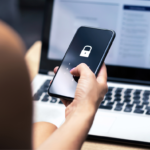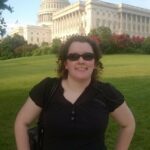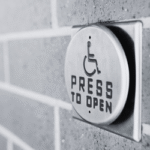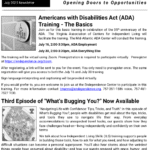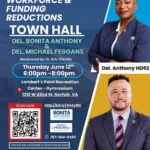The Americans with Disabilities Act (ADA) was signed into law on July 26, 1990. Disability Pride Month is celebrated in July to commemorate this landmark legislation.
We asked Shernika Holley, ECI’s Deaf and Hard of Hearing Outreach Coordinator, to share her experiences with the ADA and what disability pride means to her:
What was your experience navigating work, school, and public areas before the ADA? How did it change? I remember learning about the ADA in 1990, but I wasn’t aware of what it really meant. When I was a senior in high school, my interpreter helped me understand the ADA and the rights I have. She taught me the difference between certified and non-certified interpreters and explained how I can have one provided.
If it weren’t for the ADA, what are some things in your life that would not be possible? I would feel shame or embarrassed of my hearing loss if we did not have the ADA. I would not know what was going on. I can read lips, but it is extremely exhausting. In fact, my first semester at ODU wasn’t great. I was frustrated with the interpreter I had. Then, I spoke with Educational Accessibility. They really understand reasonable accommodations and approved my request for my preferred interpreter. If I had to take a test or needed more time for homework, I just had to talk to them. Because of the ADA, they gave me what I needed.
What does “disability pride” mean to you? To me, disability pride means I am not ashamed of my disability. I am Deaf, and I am proud of who I am.
Is there a quote that represents disability pride to you? “Being Deaf does not mean we’re broken.” – Sydnee Akers.


